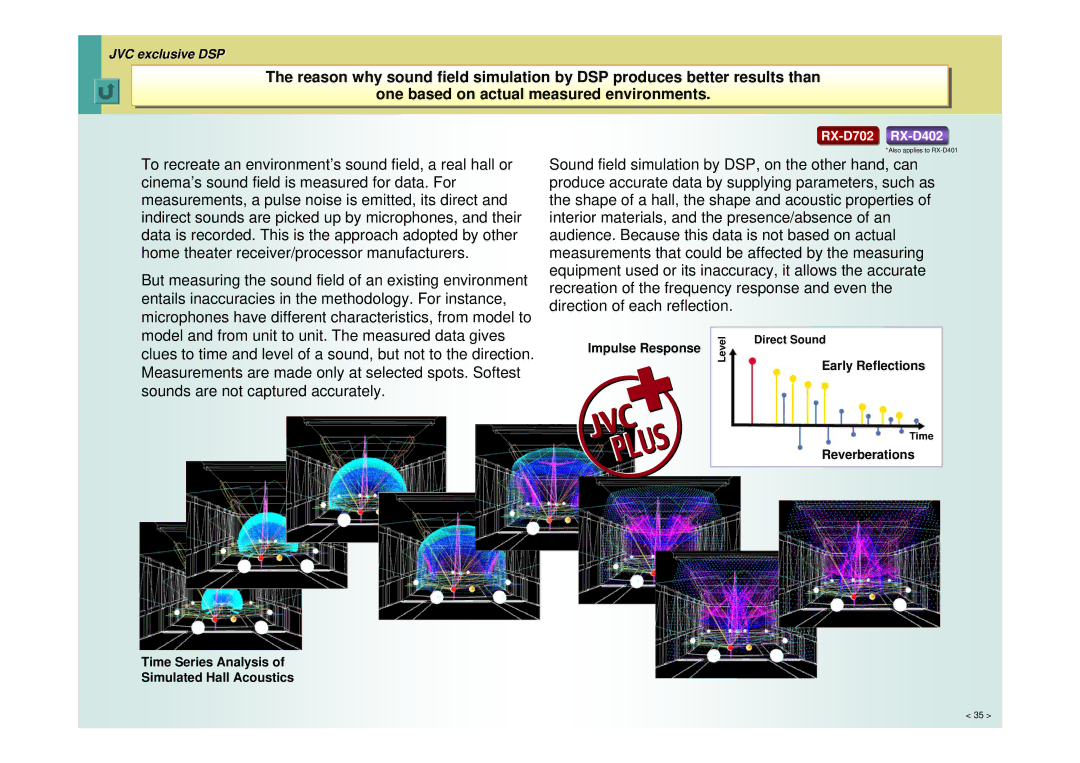RX-D401, RX-D402, RX-D702 specifications
The JVC RX-D702, RX-D402, and RX-D401 are remarkable receivers that exemplify JVC's commitment to delivering high-quality audio and advanced technology for home entertainment. Each model presents distinct features while maintaining a strong foundation of performance, making them suitable for various listening needs.The JVC RX-D702 serves as a flagship model, offering exceptional audio quality and a plethora of connection options. It supports Dolby Atmos and DTS:X, providing an immersive sound experience that enhances movies, music, and games. The receiver supports 4K HDR video pass-through, ensuring high-resolution visuals. Featuring Wi-Fi connectivity, the RX-D702 allows instant streaming from various music services and seamless integration with smart home devices. The intuitive on-screen interface and remote app make navigation simple, providing users with easy access to settings and configurations.
In standby mode, the RX-D702 features low power consumption, a key consideration for eco-minded consumers. The model also showcases a robust power rating, ensuring it delivers dynamic sound with strength and clarity across different audio formats. Equipped with multiple HDMI inputs, audio and video signal routing becomes effortless, making it a perfect solution for multi-device setups.
The JVC RX-D402 is designed for users who desire powerful audio features without the extensive capabilities of the RX-D702. While it doesn’t support the latest surround sound formats like Dolby Atmos, it provides excellent stereo sound with a solid power output. The RX-D402 includes essential streaming services and Bluetooth connectivity, allowing users to enjoy music wirelessly from devices. Its compact size makes it ideal for smaller rooms where space may be a limitation.
Lastly, the RX-D401 remains a user-friendly receiver, appealing to budget-conscious consumers who still want quality performance. It offers essential audio performance and basic connectivity options, including Bluetooth and USB inputs. The RX-D401 is perfect for casual listeners who enjoy music without the complexity of advanced surround sound formats.
In summary, the JVC RX-D702, RX-D402, and RX-D401 offer a variety of features and technologies, catering to all kinds of audio preferences. From the high-end capabilities of the RX-D702 to the straightforward functionality of the RX-D401, JVC's receivers ensure impressive sound quality tailored to different environments and user needs.

